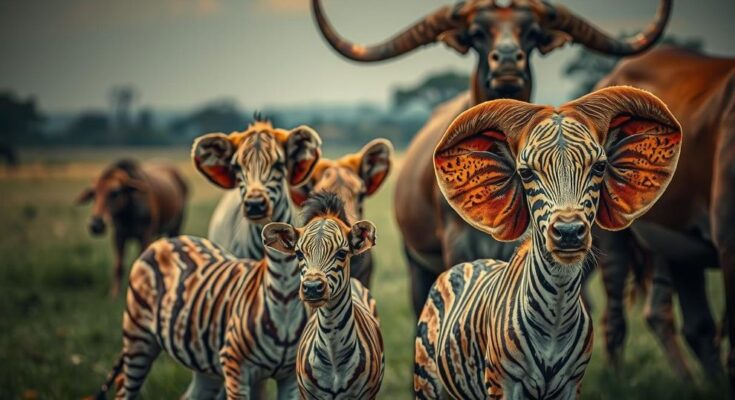A coalition of animal welfare organizations denounces Namibia and Zimbabwe’s plans to cull thousands of elephants and other wildlife, citing unsustainable practices that threaten fragile ecosystems, wildlife populations, and local economies reliant on tourism. They advocate for humane alternatives to address food security and human-wildlife conflicts.
A coalition formed by various animal protection and conservation organizations, such as World Animal News, Peace 4 Animals, Born Free USA, and the Born Free Foundation, is advocating against the recent decisions made by Namibia and Zimbabwe to cull a significant number of elephants and other wildlife. In August 2024, Namibia’s announcement to kill 1,002 wild animals, including 83 elephants initially stated, escalated a dire situation further aggravated by similar declarations from Zimbabwe to cull at least 200 elephants. The justification for these actions, rooted in alleviating food scarcity due to drought, has been met with skepticism. Experts believe this will not solve underlying issues such as human-wildlife conflict or contribute sustainable food sources. The coalition emphasizes that culling threatens the survival of fragile wildlife populations, leading to disrupted social structures and potential aggression from surviving animals towards humans. It raises concerns regarding the potential for increases in illegal poaching due to ivory trade pressures, as well as undermining sustainable tourism economies that depend on healthy wildlife populations. Despite claims of overpopulation, studies have shown that elephant populations in southern Africa have stabilized since 2014. Concerns extend to implications for financial gains associated with the proposals, raising the risk that endangered species’ protection will be sidelined for profit motives. The coalition is calling for alternative strategies to address the drought’s impact, advocating for the provision of staple foods and implementing effective, humane measures for mitigating human-wildlife conflicts. The coalition urges not only the Namibian and Zimbabwean governments to reconsider these culling plans but also to pursue proven methods that ensure coexistence between humans and wildlife. Furthermore, it calls on donor governments to condition aid on the development of sustainable solutions, highlighting the need for balanced approaches that safeguard both communities and endangered species.
In recent months, various African nations, particularly Namibia and Zimbabwe, have announced controversial culling plans aimed at managing wildlife populations in response to severe drought conditions. The decision to cull elephants and other species has raised alarm among conservation Groups who argue that such measures are ineffective, unsustainable and detrimental to wildlife conservation efforts. The backdrop of these announcements is characterized by a growing concern over the balance between human needs and wildlife protection in regions increasingly afflicted by environmental crisis.
In conclusion, the efforts by Namibia and Zimbabwe to cull significant numbers of elephants and other wildlife under the pretext of addressing food shortages and human-wildlife conflicts are met with extensive criticism from conservation and animal welfare organizations. These groups emphasize that culling does not provide a sustainable solution and poses serious risks to both wildlife populations and local economies reliant on ecotourism. They advocate for alternative measures that prioritize humane treatment of animals while effectively addressing the challenges posed by drought, urging governments to rethink their strategies in favor of preservation over culling.
Original Source: www.zawya.com




